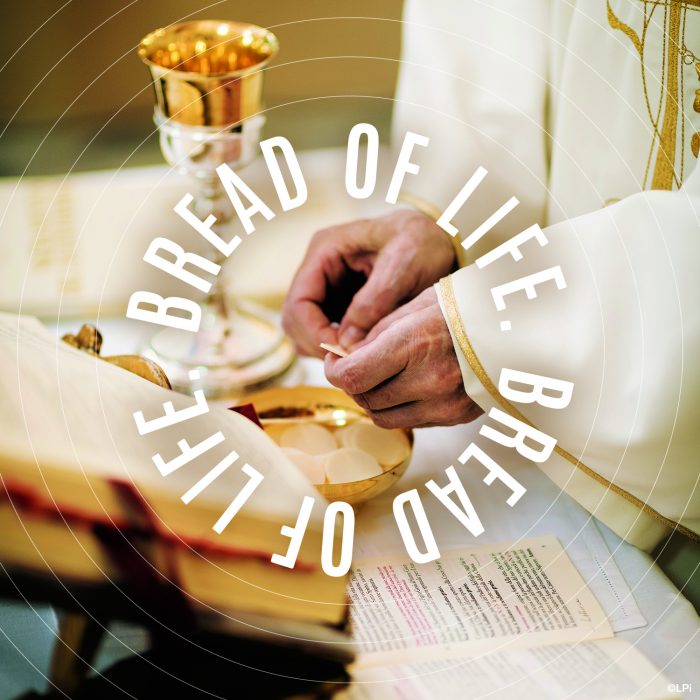 St. Teresa of Calcutta shares a story that talks about seeing Jesus in the Eucharist and seeing Jesus in the poor people in the streets of Calcutta:
St. Teresa of Calcutta shares a story that talks about seeing Jesus in the Eucharist and seeing Jesus in the poor people in the streets of Calcutta:
“Our sisters had to go to the home of the dying. And before they went, I said to them: “See, you are going there, during Mass — we always have Mass and Holy Communion before we go — and I said, “You saw during Holy Mass with what tenderness, with what love, father was touching the Body of Christ. Make sure it is the same body in the poor that you will be touching. Give that same love, that same tenderness.” They went off. After three hours, they returned, and one of them came up to my room and said, “Mother, I’ve been touching the body of Christ for three hours!” Her face was shining with joy. “What did you do?” I asked. “Well, just as we arrived, they brought a man covered with maggots. He has been picked up from a drain. For three hours, I have been touching the body of Christ. I knew it was He.” There was this young sister who had understood that Jesus cannot be deceived. He has said so, “I was sick, and you took care of me.”
What tremendous faith does Mother Teresa encourage her sisters to find! As an American, I cannot fathom the extreme poverty that is the daily experience of the Missionaries of Charity in India. I cannot understand the depth of love for Jesus that Mother Teresa carried in her heart until the day she died. But what I can see is how her love for Jesus was not separated from her love of the poor and for each of her Sisters, and everyone she met. For her, it was one and the same love shown to Jesus and to the poor. Behind the stench of rotting flesh, behind the character flaws, and even behind the lack of gratitude of those whom she serves, Mother Teresa did everything with love as an expression of her love for Jesus. Her example can be off-putting to us because it is so simple and so profound; it lacks a sophisticated explanation and an academic rigor. Her witness is convicting to us because there is no duplicity between her beliefs and her actions. Her impact resonated across the globe because she despised the celebrity status that came to her.
Our theological reflections would say that there’s a vertical dimension to the Eucharist, one that expresses the awe and reverence for the mystery confected in the sacrament. There is also the horizontal dimension wherein our lives are fueled by the Eucharist that consumes us each time we receive communion. Some of us might tend to focus on one or the other aspect, not Mother. For her, they are the same, for how can we say we love Jesus if we don’t love the poor whom he loved? Mother Teresa continues, “We must be completely free [of sin and worldly attachments] to belong wholly to Jesus Christ. Can I, in sincerity, say, ‘Jesus is really living in me now?’ Have I come to know Jesus in reality, not only in imagination? Externally, I might be very recollected and prayerful, but this counts for nothing, Sisters, unless deep down you can see that Jesus is really there.”
Rightly so, the Church offers us this Solemnity of the source and summit of our faith. It is a treasure far beyond human understanding. And yet it is a reality of Christian faith both intimately personal, and communally binding, one that is not confined to the laws of space and time yet operates there to give us a mystical foretaste of our eternal destiny. What we experience in Holy Communion, let’s share with the world without hesitation or reserve … not just on Sunday, but every day. Not just when it’s easy or when I “feel good,” but most especially when it’s costly and difficult.
Contributed by: Br. John-Marmion Villa
Prayer:
O Lord, Christ our God,
King of the ages and Creator of all,
I thank you for all the good things
which You have bestowed upon me,
and for this communion
of your immaculate and life-giving mysteries.
Therefore, I entreat you,
O Good One, and Lover of Mankind,
keep me in the tabernacle of your wings.
Grant that, with a pure heart,
even to my last breath,
I may partake worthily
of Your holy things
until the remission of my sins
and unto life eternal.
For you are the Bread of Life,
the fountain of all holiness,
the giver of good things,
and unto you, we ascribe glory,
O Father, Son and Holy Spirit,
now and forever,
and unto the age of all ages.
Amen.
Readings for: The Most Holy Body and Blood of Christ: Lectionary 168
Editor’s Note:
Father Marat is on vacation
and will continue with his
Reflections upon his return.



Comments are closed here.